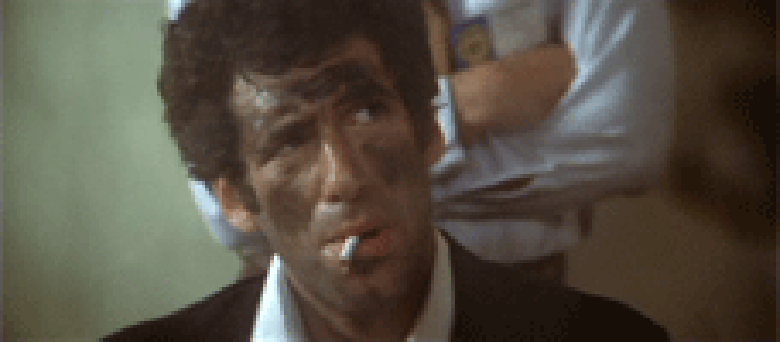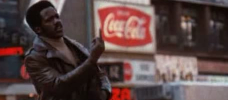Credits
Feature by: Cullen Gallagher, Leo Goldsmith, Adam Balz, Glenn Heath Jr., Michael Nordine, Lindsay Peters, and Daniel Loria
Posted on: 16 January 2011
The 1970s was a hard time for the Private Detective. No longer was this hardboiled hero the tough, cynical, streetwise and smartass one-man police force that had pervaded the genre for decades. Something had happened: the iconic image of fedora, trench coat, dame in one hand and gat in the other, had become outdated. The archetype embodied on-screen by Humphrey Bogart in The Maltese Falcon and The Big Sleep didn’t have a place in the modern world.
As Bill Cosby so eloquently and elegiacally says in 1971’s Hickey and Boggs, “There’s nothing left of this profession… It’s all over.” They may have been unfit to solve their case, unable to pay their bills, and incapable of hitting anything with their guns, but Hickey and Boggs weren’t the only PIs down on their luck during the decade. Director Robert Altman and screenwriter Leigh Brackett transported Chandler’s iconic Philip Marlowe to the 1970s in The Long Goodbye. As played by Elliot Gould, Marlowe is a pathetic sight to see. Even his cat can see through his charade—after Marlowe tries to feed it the wrong brand of cat food, the animal runs away, and the detective spends the remainder of the film in search of it.
Similar transformations were happening in literature, as well. In his Matthew Scudder series, Lawrence Block took away the Private Investigator’s license – one less sign of authority and legitimacy – and gave him a spiritual and moral crisis (as well as one hell of an alcohol problem). And in The Last Good Kiss, James Crumely took the Private Detective into the post-Vietnam era, making his protagonist a vet haunted by the atrocities he committed, and fracturing his identity between a number of different guises: grad student/undercover federal agent, sports journalist, repo man, football player, hippie, or bartender. Not only does he not like detective work, he doesn’t even do it that often.
But not all Private Detectives were so confused about their identity. On-screen, Paul Newman’s Harper (based on Ross Macdonald’s series character Lew Archer) in The Drowning Pool is a throwback to the wisecracking and potent Private Eye of yesteryear. And in print, Robert B. Parker’s Spenser embodied all the best traits of Philip Marlowe and the classic pulp detectives with academic precision. And who should know better than Parker, who got did his Ph.D. dissertation on the very writers and detectives he was modeling his own fiction after?
The tension between the revisionist and traditional Private Detective is something we will be exploring in this feature throughout the next week here on NotComing.com. The feature will culminate with a screening of Hickey & Boggs at 92YTribeca (on Saturday, January 22nd) as part of our monthly screening series.
Introduction by Cullen Gallagher
By Cullen Gallagher, Leo Goldsmith, Adam Balz, Glenn Heath Jr., Michael Nordine, Lindsay Peters, and Daniel Loria ©2011 NotComing.com
Reviews
We don’t do comments anymore, but you may contact us here or find us on Twitter or Facebook.




